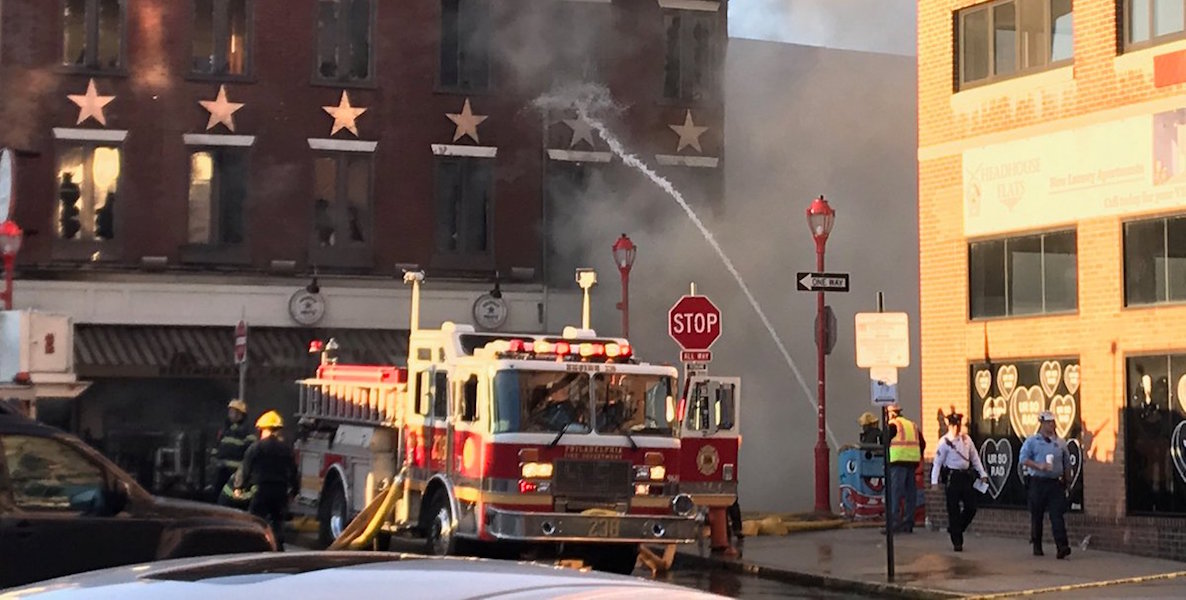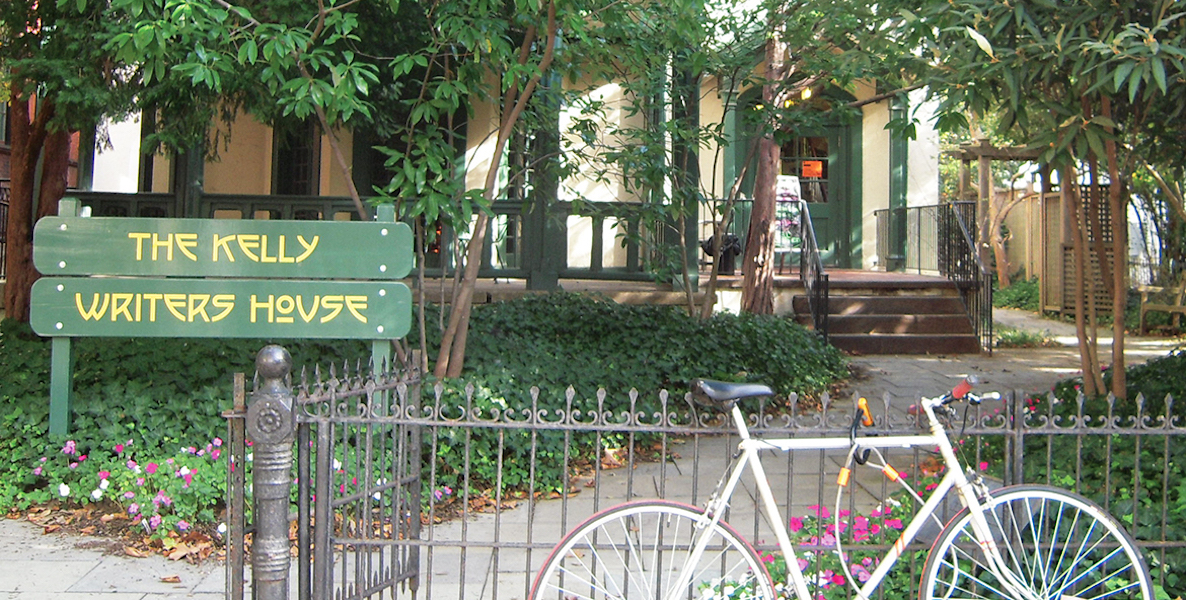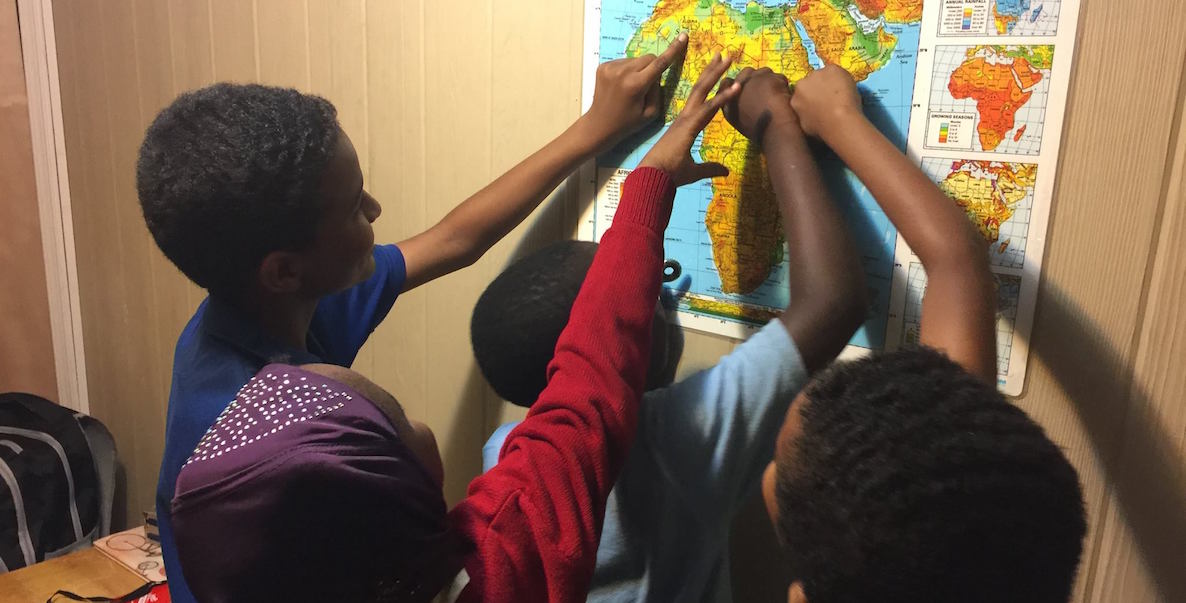Every May, dark green dumpsters arrive and settle across Penn’s campus just before graduation. Slowly, they’re filled with couches, followed by mini-fridges, followed by garbage bags overflowing with unlaundered clothing. This stripping down of collegiate belongings continues until all that’s left can fit into a basement, a car or a few suitcases. After the celebrations and a few hours of final packing, the graduates leave. For a few days, the overwhelming amount of trashed, still-usable stuff sits idle, the bulky residue of four-year guests. Then that’s hauled off too.
This routine repeats every year, since most of Penn’s 20,000 students don’t come from Philadelphia, and don’t stick around the city after graduation. The Civic Ivy ranks ninth among universities whose share of graduates move to Philadelphia—graduates who come to serve the city as voters and community members—trailing behind La Salle and Delaware State.
Work and live in PhillyDo Something
Still, Philadelphia’s bustling charm is the reason why so many students are drawn to Penn, and the city inevitably becomes a part of student life. We venture downtown on Fridays and Saturdays. We spend afternoons perusing books at The Last Word. On Sundays, we venture a few blocks up Baltimore Avenue, maybe stopping at Renata’s Kitchen or Abyssinia on Locust. After heading off to Chicago for graduate school, my boyfriend is still obsessed with the mole at Guisados Don Roman in East Passyunk. On my way to work, I remember walking down the Walnut Street bridge late at night, catching the lights of the Post Office and 30th Street Station shimmering in the waters of the Schuylkill.
In our time at Penn, the idea of “Philadelphia” is regularly cast as the liberating counterpoint to the anxiety and opulence of our campus. Life at Penn can be emotionally and academically exhausting, and Philadelphia’s institutions are where we often go for a limited escape—but not for citizenship.
As graduates, will we check in on whether Penn finally chooses to pay Payments In Lieu of Taxes, or divest from fossil fuels? Will we demand it? Will we still keep up— if we ever did—on our alma mater’s lobbying of city government, its relationship with local schools, or its role in gentrification?
Perhaps a good metric of how well you know a place is where, and how often, you notice it changing. Almost 20 years ago, novelist Colson Whitehead wrote that “you start building your private New York the first time you lay eyes on it.” He was writing in response to September 11, but his point was that a city would always be your construction of it. “There are eight million naked cities in this naked city—they dispute and disagree,” Whitehead wrote. After enough time, we develop second senses for the city we build for ourselves: the park for late-night confessions, the museum exhibits where we find inspiration, and the best train-rides for thinking. Your skyline could grow or crumble, Whitehead hypothesized, but there would always be a version that only belonged to you.
From student writers Read More
Penn students create their own Philadelphia too, but they’re limited. Penn students’ Philadelphia generally reflects a lot of downtown, a lot of University City, but not much of North Philadelphia or Forgotten Bottom. Our Philadelphia is quite literally guarded by Penn’s private police force, the second-largest in the country. Our experience of Philadelphia is often (though not universally) more white and wealthier than Philadelphia’s permanent residents. After four years, some Penn students have never used the city’s public transportation.
We judge people when they explore our places but don’t plan to stay. Long-time New Yorkers are infamous for our unbecoming animosity to tourists. Even after dropping hundreds of dollars in our city, we’re doubtful that visitors ever really saw our city at all. Their “New York” is so small. They’ve never scarfed down the oval-shaped “deep-dish pizza,” a staple of every New York City public school lunch. They won’t get angry when yet another good cafe closes down, only to become a CVS. They’ve never survived a community meeting hosted by the MTA.
The city allowed us to thrive as students, and we ought to return the favor, to Philly and the next generation.
The first time I scribbled out a version of this reflection, and sent it to a friend, she remarked that it sounded idyllic, romanticized. In a way, I had remembered Philadelphia the way sightseers speak about New York City, where my family has lived for four generations.
In our time at Penn, we quickly notice the changes closest to us, too: the new food hall, the new dormitory, the emerging crop of shimmering glass skyscrapers, the new political science building. We noticed the closure of Capogiro on Walnut and the rise and fall of Raxx Vintage West on 37th Street.
About why Philly is good for college grads Read Even More
Four years is a long time, but it isn’t enough time to see how our school will impact this city. As we start our careers, in New York, in the Bay, abroad, elsewhere, I wonder whether our time in Philadelphia, and how we spent it, will keep us paying attention after we’re gone.
For now, I’m still subscribed to the Philadelphia Inquirer, and read it from time to time in my new room in San Francisco. I made my first, very-measly post-graduation donation to two Philadelphia-area nonprofits. While I read, I sometimes listen to a YouTube-video recording of the Market-Frankford line.
Philadelphia, and Penn, are still fresh in my mind, but I wonder how long they’ll stay. As graduates, will we check in on whether Penn finally chooses to pay PILOTS—Payments In Lieu of Taxes—or divest from fossil fuels? Will we demand it? Will we still keep up— if we ever did— on our alma mater’s lobbying of city government, its relationship with local schools, or its role in gentrification? Come homecoming this fall our campus will already be bigger than how we remember it today.
Of course, as graduates, we should tell subsequent classes to be more appreciative of and sensitive to Philadelphia. We should encourage them to recognize that they will only be in this city for a few years, and that they shouldn’t pass through Penn, or this city, with an uncritical eye. But as dedicated student activists often note, passing on knowledge about how institutions as large as Penn, and communities as historic as Philadelphia’s, operate is strenuous and difficult. In a few years, we won’t know any students on campus to urge to do better than us.
Like so many universities, Penn has us thinking about our role of alumni months before the robes and tassel emerge. Senior spring events are organized to catalyze Penn pride. We can expect—and have already received—flurries of emails reminding us how to stay involved with Penn, soliciting donations that can “add to the incredible memories we have made at Penn.”
This campus has allowed you to thrive. As a student, you’ve gained so much. Now you ought to return the favor, to the next generation, as you leave campus and prepare for your “onwards” and “outwards.”
We won’t receive similar, well-manicured inquiries from Philadelphia and its residents—though we probably should. The same logic applies: The city allowed us to thrive as students, and we ought to return the favor, to Philly and the next generation.
Rebecca Heilweil is a recent graduate of the University of Pennsylvania from New York.
Photo Credits: Penn








